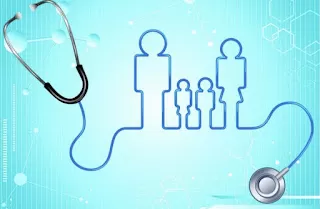10 Best Ways of Dealing With Hypertension

What are the affordable health insurance in Taxes
Here are ten effective strategies for managing hypertension (high blood pressure):
- Dietary Changes:
- DASH Diet: Adopt the Dietary Approaches to Stop Hypertension (DASH) diet, which emphasizes fruits, vegetables, whole grains, and low-fat dairy foods. It’s rich in potassium, magnesium, and calcium, which help lower blood pressure.
- Reduce Salt Intake: Aim for less than 2,300 mg of sodium a day, ideally moving towards 1,500 mg for those with hypertension. This means avoiding processed foods, which are often high in salt.
- Weight Management:
- Losing even a small amount of weight if you’re overweight can reduce blood pressure. Focus on sustainable weight loss through diet and exercise.
- Regular Exercise:
- Engage in at least 150 minutes of moderate aerobic activity or 75 minutes of vigorous activity each week, or a combination of both. Activities like walking, swimming, or cycling are beneficial.
- Limit Alcohol:
- If you drink alcohol, do so in moderation. For men, this means up to two drinks a day, and for women, one drink or less.
- Quit Smoking:
- Smoking damages your arteries and can cause an increase in blood pressure. Quitting smoking can reverse some of this damage.
- Stress Management:
- Practice relaxation techniques like deep breathing, meditation, yoga, or even regular physical activity. Reducing stress can help lower blood pressure.
- Adequate Sleep:
- Aim for 7-9 hours of quality sleep per night. Poor sleep can affect blood pressure regulation.
- Monitor Blood Pressure:
- Regular monitoring at home can help you understand your body’s response to lifestyle changes and medication, if prescribed.
- Medication Compliance:
- If prescribed medication, take it as directed. Medications can be crucial in managing hypertension, especially when lifestyle changes alone aren’t sufficient.
- Regular Check-ups:
- Keep regular appointments with your healthcare provider to monitor your blood pressure and adjust treatment plans as needed.
Additionally, consider these supplements and foods after consulting with a healthcare provider:
- Potassium: Foods high in potassium can help lower blood pressure. Examples include bananas, oranges, potatoes, and spinach.
- Magnesium: Found in foods like spinach, legumes, nuts, and whole grains, magnesium can also aid in blood pressure reduction.
- Omega-3 Fatty Acids: Found in fish oil, flaxseeds, and walnuts, omega-3s have been shown to lower blood pressure slightly.
Remember, managing hypertension often requires a combination of these strategies, tailored to the individual’s health profile. Always consult with a healthcare provider before making significant changes to your health regimen, especially regarding medication or supplements.







